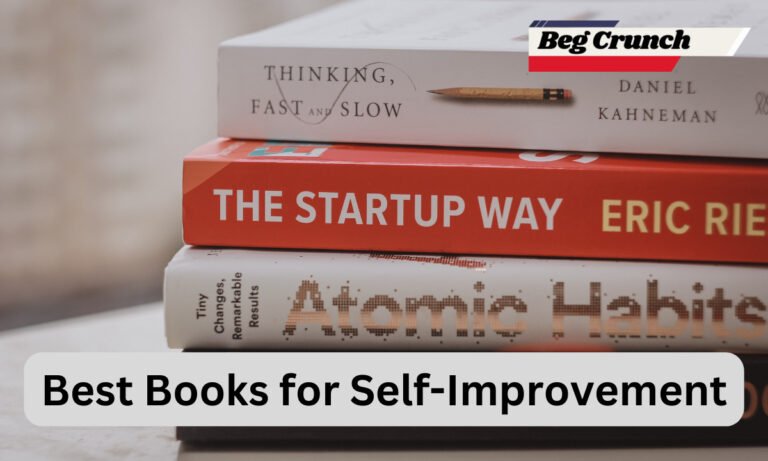Books About Finance
Finance is a critical aspect of modern life, encompassing personal budgeting, investment strategies, economic principles, and much more. Whether you’re aiming to improve your financial literacy, make informed investment decisions, or gain insights into the global economy, there are numerous insightful books available on the subject. In this comprehensive guide, we’ll explore a diverse selection of highly recommended books about finance that cater to individuals at various levels of expertise.
Table of Contents
- Building a Strong Financial Foundation
- The Total Money Makeover by Dave Ramsey
- By Joe Dominguez and Vicki Robin, Your Money or Your Life
- Investment Strategies
- The Intelligent Investor by Benjamin Graham
- Burton G. Malkiel’s work A Random Walk Down Wall Street
- Understanding Economic Principles
- Freakonomics by Steven D. Levitt and Stephen J. Dubner
- Thomas Piketty’s book Capital in the Twenty-First Century
- Personal Finance for the Future
- Robert T. Kiyosaki’s book Rich Dad, Poor Dad
- The Millionaire Next Door by Thomas J. Stanley and William D. Danko
- FAQs About Finance
- Why is having an emergency fund important?
- How can I begin investing on a tight budget?
- What main elements are affecting the stock market?
Building a Strong Financial Foundation
Creating the Road to Financial Empowerment with Dave Ramsey’s “The Total Money Makeover”
Within the realm of personal finance literature, Dave Ramsey’s “The Total Money Makeover” emerges as a guiding light, offering individuals a meticulously outlined roadmap to seize control of their financial destinies. By navigating the intricate web of budgeting, debt reduction, and emergency fund creation, Ramsey’s book stands as a beacon that has empowered countless individuals on their journey toward financial liberation.
Ramsey’s work transcends the realm of theoretical discourse, becoming a practical blueprint for financial transformation. His step-by-step plan is a testament to his understanding of the diverse challenges individuals face in navigating their finances. At its core, the book resonates as a motivational coach, urging readers to embrace budgeting not as a restriction, but as a tool to redirect funds toward aspirations and long-term goals.
The gem within “The Total Money Makeover” lies in Ramsey’s strategic guidance on debt reduction—a facet that cripples many. Ramsey’s advice on the snowball method offers a tangible strategy to chip away at debts incrementally, fostering a sense of achievement that fuels financial determination. Beyond strategies, the book’s motivational aspect ignites the reader’s confidence, enabling them to rewrite their financial narratives.
“Your Money or Your Life” by Vicki Robin and Joe Dominguez: A Holistic Odyssey Towards Financial Fulfillment
In the tapestry of personal finance and life satisfaction, “Your Money or Your Life” penned by Vicki Robin and Joe Dominguez weaves an intricate narrative. This work transcends conventional finance guides, inviting readers to delve deep into their relationship with money, harmonize spending with values, and ultimately attain the elusive state of financial independence. The book introduces the groundbreaking concept of “life energy”—a profound paradigm shift that illuminates the true cost of earnings about time and fulfillment.
Robin and Dominguez present a holistic approach, acknowledging that financial health extends beyond mere numbers. The book’s essence rests in the revolutionary philosophy that financial transactions aren’t just transactions of currency, but exchanges of one’s irreplaceable life energy. This realization becomes a catalyst, urging readers to align financial decisions with intrinsic values, thereby optimizing the life-energy exchange.
“Your Money or Your Life” doesn’t merely dwell in theory; it bridges the gap between contemplation and action. The authors equip readers with transformative tools, such as the nine-step program, which guides individuals through the journey of reshaping their financial landscapes. From calculating the true hourly wage to envisioning the life one desires, the book morphs into a life-altering companion.
Investment Strategies
The Intelligent Investor by Benjamin Graham
Considered a timeless classic, The Intelligent Investor by Benjamin Graham provides valuable insights into investment principles and strategies. Graham’s approach emphasizes the importance of value investing, analyzing companies’ fundamentals, and making rational decisions based on careful research rather than market trends.
Burton G. Malkiel’s work A Random Walk Down Wall Street
Burton Malkiel’s book challenges conventional wisdom by introducing the concept of the “random walk theory” in investing. He explains how market prices reflect all available information and suggests that long-term investors can benefit from diversification and low-cost index funds. This book provides a balanced perspective on active and passive investment strategies.
Understanding Economic Principles
Freakonomics by Steven D. Levitt and Stephen J. Dubner
Freakonomics explores economics through unconventional and thought-provoking lenses. Steven Levitt and Stephen Dubner analyze real-world phenomena, uncover hidden incentives, and reveal the economic forces at play in unexpected places. The book encourages readers to think critically about cause-and-effect relationships in various aspects of life.
Thomas Piketty’s book Capital in the Twenty-First Century
Thomas Piketty’s groundbreaking work delves into the dynamics of wealth and inequality over centuries. The book presents a comprehensive analysis of historical economic data and argues that wealth tends to concentrate in the hands of a few over time. Piketty’s research sheds light on the societal implications of economic inequality.
Personal Finance for the Future
Robert T. Kiyosaki’s book Rich Dad, Poor Dad
Rich Dad Poor Dad challenges conventional notions about money and investing. Robert Kiyosaki shares lessons he learned from his “rich dad” and “poor dad” figures, highlighting the importance of financial education, assets, and passive income. The book encourages readers to think differently about wealth-building.
The Millionaire Next Door by Thomas J. Stanley and William D. Danko
In The Millionaire Next Door, the authors present surprising findings about the habits and characteristics of millionaires. They emphasize that many millionaires live modestly, prioritize savings, and make thoughtful financial choices. The book offers insights into how ordinary individuals can accumulate wealth over time.
FAQs
Why is having an emergency fund important?
An emergency fund serves as a financial safety net, providing funds to cover unexpected expenses like medical bills, car repairs, or job loss. Having an emergency fund prevents individuals from going into debt during challenging times and contributes to financial stability.
How can I begin investing on a tight budget?
Starting with a limited budget is possible through strategies like dollar-cost averaging and investing in low-cost index funds. In order to lessen the effects of market volatility, dollar-cost averaging entails investing a predetermined amount at regular periods. Index funds offer diversification and are often more affordable than individual stocks.
What main elements are affecting the stock market?
The stock market is influenced by a combination of economic indicators, corporate earnings reports, interest rates, geopolitical events, and investor sentiment. Market prices can also be influenced by trends, technological advancements, and changes in consumer behavior. Investors can make wise selections if they are aware of these variables.
Conclusion
the world of finance is multifaceted, offering opportunities for personal growth, wealth accumulation, and economic understanding. These recommended books provide a spectrum of perspectives, from personal finance strategies to investment principles and economic analyses. By immersing yourself in these texts, you can develop a comprehensive understanding of finance and make informed decisions to secure your financial future.







